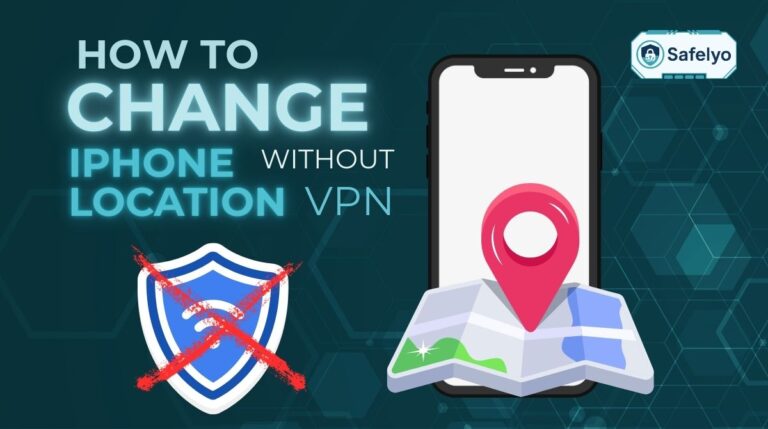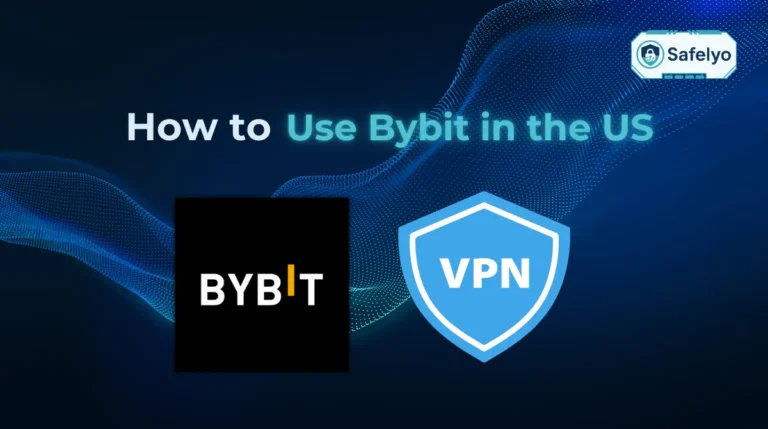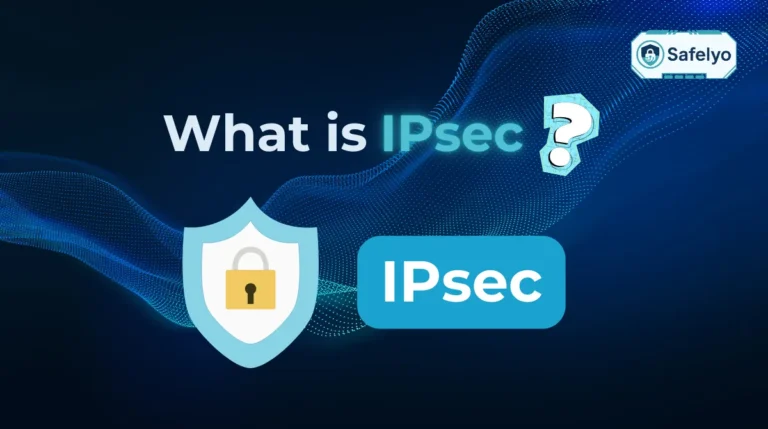As your website or online project grows, you’ll inevitably hear the term VPS. It’s often presented as the next big step after basic web hosting, but the technical definitions can be confusing, leaving you wondering: What is a VPS, and is it the right choice for you?
Having guided countless creators and small business owners through this exact transition, I’ve found the best way to cut through the noise is with a simple housing analogy. Forget complex server diagrams for a moment; we’re going to explain everything by comparing web hosting to moving from a noisy shared dorm to your very own private apartment.
In this guide, we’ll demystify the jargon and show you:
- What a VPS is, using our simple analogy.
- How it differs from other popular hosting options.
- The core benefits of finally getting your “own space”.
- A practical checklist to know exactly when it’s time to upgrade.
It’s time to stop feeling confused about your hosting options. Let me help you find the perfect ‘home’ for your website.
What is a VPS in 30 seconds?
A VPS (Virtual Private Server) is a private, isolated ‘apartment’ on a large shared server building. Unlike basic shared hosting (a noisy dorm room), a VPS gives you guaranteed resources (like your own kitchen and bathroom) and enhanced security. It’s the perfect, cost-effective middle ground between crowded shared hosting and an expensive dedicated server (a private mansion).
1. The housing analogy: Different types of web hosting
To truly grasp what a VPS is, let’s take a tour of the neighborhood. Choosing a web host is a lot like finding a place to live. Each option has its own trade-offs in terms of cost, space, privacy, and responsibility.
1.1. Shared hosting: Living in the dorm room
This is where most of us start our online journey. I launched my first blog on a cheap shared hosting plan, and it’s the perfect starting point. Think of it as a college dorm. You get a room in a large building that you share with hundreds of other tenants (websites).
You all share the same resources: The kitchen, the bathrooms, and the internet connection (the server’s CPU, RAM, and bandwidth). It’s incredibly affordable and easy to manage because the dorm manager (the hosting company) takes care of everything.
The downside? If one of your roommates decides to throw a massive party (gets a huge spike in traffic), the entire building can get noisy, and the power might flicker. Your website’s performance is directly affected by your neighbors. You also have to live by the dorm’s rules, meaning you have very limited ability to customize your space or install special software.
1.2. Dedicated server: Owning the private mansion
On the opposite end of the spectrum is the dedicated server. This is the equivalent of owning a private mansion. You rent an entire physical server all to yourself.
This gives you the ultimate in performance, security, and control. You can paint the walls any color you like, host a party for thousands, and build a high-tech security system. For large e-commerce sites or massive applications I’ve worked with, this level of power is non-negotiable.
But it comes with two major catches: A mansion-sized price tag and full responsibility. You’re not just the owner; you’re also the security guard, the plumber, and the electrician. You need significant technical expertise to manage and maintain it. For most website owners, it’s complete overkill.
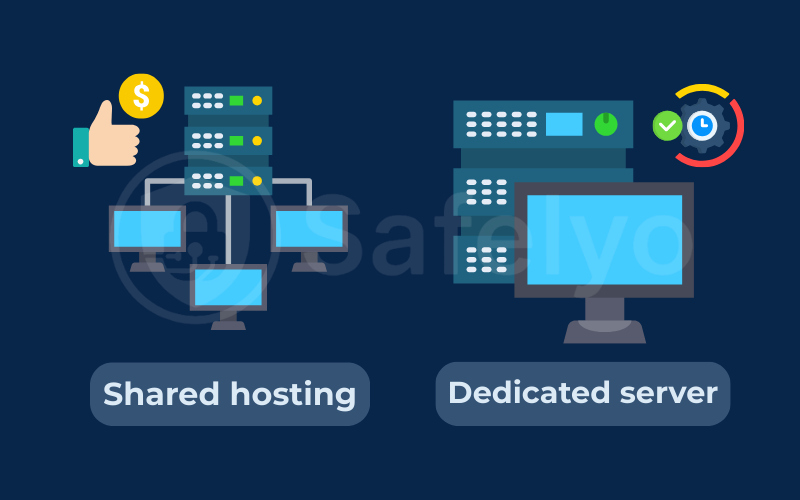
1.3. What is a VPS?
This is the perfect middle ground, and it’s where the magic of a VPS lies. A VPS is like renting your own private apartment in a larger building. While you still share the building (the physical server) with other tenants, your apartment is completely self-contained and isolated.
Here’s what that means for your website:
- Your neighbors’ problems aren’t your problems. You have your own front door and your own walls. If another website on the server gets hacked or has a traffic surge, your ‘apartment’ remains locked, secure, and unaffected.
- You have guaranteed resources. Unlike the dorm’s shared kitchen, your apartment has its own kitchen, bathroom, and electricity meter. A VPS guarantees you a specific amount of RAM, CPU power, and storage that is yours and yours alone.
- You get to decorate. You get “root access,” which is the master key to your server. This allows you to install custom software and configure the server environment exactly how you need it.
This is all made possible by a technology called a hypervisor. Think of it as the landlord who cleverly divides one large building into multiple, fully independent apartments, ensuring each tenant has their own private, secure space.
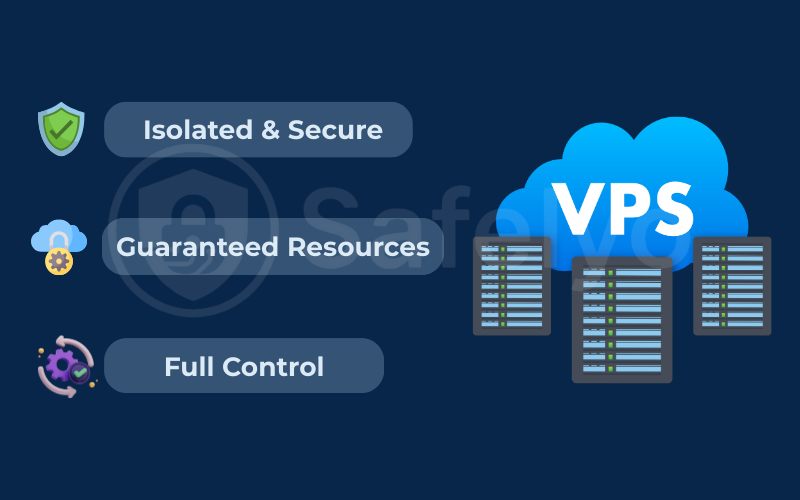
2. The ultimate hosting comparison
Seeing the descriptions is one thing, but putting them side-by-side is where the differences really click. Think of this as the real estate brochure that lays out all your options. To make it even clearer, I’ve put together a simple table that summarizes the key trade-offs.
| Feature | Shared Hosting (Dorm) | VPS (Apartment) | Dedicated Server (Mansion) |
|---|---|---|---|
| Cost | $ (Very Low) | (Moderate) | $ (Very High) |
| Performance | Low to Moderate (Unpredictable) | High (Guaranteed Resources) | Very High (All Yours) |
| Security | Low (Affected by Neighbors) | High (Isolated Environment) | Very High (Total Control) |
| Customization | Very Limited | High (Root Access) | Complete Control |
| Technical Skill Required | Low (Beginner-Friendly) | Medium to High (Unmanaged) / Low (Managed) | Very High (Expert Level) |
| Best For | Beginners, small blogs | Growing websites, small businesses | Large enterprises, high-traffic sites |
As you can see, the choice is all about balancing cost, control, and complexity.
From my experience helping people choose the right plan, the most overlooked line item is ‘Technical Skill Required’. It’s easy to get excited by the idea of a “mansion” until you realize you’re the one responsible for fixing the leaky roof and securing the windows. A VPS strikes that beautiful balance, giving you the freedom and power of your own space without the overwhelming responsibility and cost of a dedicated server. It’s the upgrade that truly empowers growth.
Now that you can see how it stacks up, let’s dive deeper into the specific benefits of finally getting your own ‘apartment’.
3. The benefits of a VPS?
Moving into a VPS ‘apartment’ isn’t just about getting a new address; it’s about upgrading your entire online lifestyle. Here are the core advantages you gain when you get your own set of keys.
Guaranteed resources.
This is the single biggest performance booster. In a shared hosting ‘dorm’, your website’s speed can plummet when a neighboring site has a surge in traffic. With a VPS, your ‘electricity’ won’t dim when your neighbor turns on their air conditioner. You are allocated a specific amount of CPU power and RAM that is 100% yours, ensuring consistent and predictable performance, even when your site gets busy.
Enhanced security.
Your ‘apartment’ is locked and isolated from your neighbors. In my security audits, I’ve often seen how a single vulnerable website on a shared server can create a backdoor for attackers to affect everyone else. A VPS creates a virtual wall around your site. A security breach on another user’s VPS on the same physical machine is far less likely to impact you.
Greater control and customization.
A VPS grants you ‘root access,’ which is like being the superuser of your own server. You’re no longer bound by the ‘dorm’ rules. You can install custom software, choose your operating system, and fine-tune server settings to perfectly match your application’s needs. This is essential for developers or businesses with specific technical requirements.
Scalability.
It’s incredibly easy to upgrade your ‘apartment’. As your website grows, you’ll inevitably need more resources. With a VPS, you can often add more RAM, CPU, or storage with just a few clicks in your hosting control panel, without the hassle of migrating to a completely new ‘building’.
Cost-effectiveness.
This is the bottom line. With a VPS, you get many of the high-end benefits of a dedicated server (a mansion) – like privacy, control, and dedicated resources – for a fraction of the price.
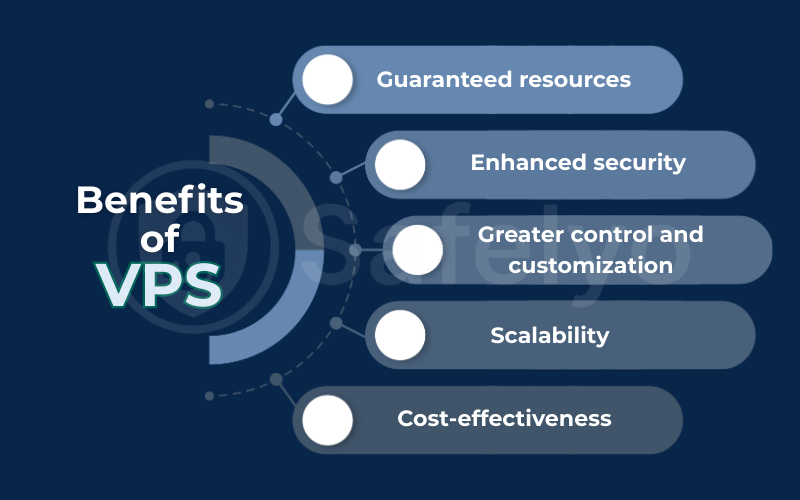
Safelyo’s expert insight:
“Private” doesn’t mean “invincible”
While a VPS provides excellent isolation from your ‘neighbors,’ it’s crucial to remember that you are now responsible for the security inside your ‘apartment.’ I always remind my clients of this. This means you still need to use strong passwords, keep your software updated, and configure a firewall. A VPS gives you a locked front door, but you still need to be smart about who you let in.
4. When is it time to upgrade to a VPS?
The jump from shared hosting to a VPS is a significant one, and the timing is crucial. From my experience, website owners often wait too long, enduring poor performance and security risks because they aren’t sure if they’re “big enough” for a VPS.
If you’re on a shared hosting plan, here are the clear signs that you’re outgrowing your ‘dorm room’.
- Your website is getting slow. This is the most common red flag. You notice pages are taking longer to load, especially during peak traffic hours. Your visitors are noticing it too, and slow sites can hurt your search engine rankings and user experience.
- You’re experiencing more downtime. Are you seeing more “Internal Server Error” messages or finding your site is completely unresponsive? As your traffic grows, the shared resources can get overloaded, causing your site to crash frequently.
- You’re hitting resource limits. Your current host is sending you warning emails about using too much CPU or RAM. This is a direct signal that the dorm’s shared utilities can’t handle your needs anymore.
- You have security concerns. You’re running an e-commerce store, handling sensitive user data, or simply want a more robust defense against potential threats. The isolation of a VPS is a fundamental step up in protecting your digital assets.
- You need to install custom software. You want to use a specific application, a different programming language, or a server configuration that your shared host doesn’t support. A VPS gives you the freedom to build the exact environment you need.
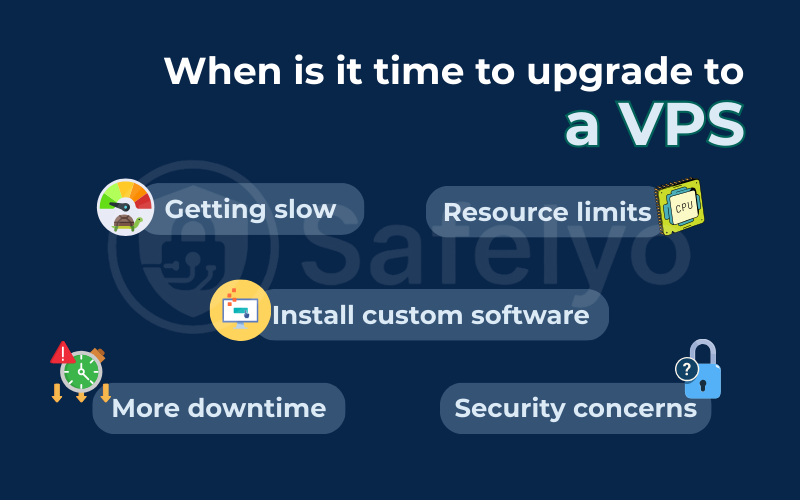
I always tell my clients this simple rule: If you check two or more of these boxes, it’s a strong signal that it’s time to start looking for your first VPS ‘apartment’. It’s not just about solving current problems; it’s about giving your project the solid foundation it needs to grow without limitations.
5. Managed vs. unmanaged VPS: Do you want a superintendent?
Once you’ve decided to move into a VPS ‘apartment’, you face one last important choice. Do you want to handle all the maintenance and repairs yourself, or do you want a building manager on call to handle it for you? This is the core difference between unmanaged and managed VPS hosting.
Unmanaged VPS (the DIY approach)
With an unmanaged VPS, you are the landlord. The hosting company provides the empty ‘apartment’ – they guarantee the physical server is running and the network is connected. That’s it.
You are responsible for everything else: Setting up the operating system (like Linux), installing a control panel, managing security patches, updating software, and troubleshooting any issues that arise. I only recommend this path for developers, system administrators, and highly tech-savvy users who are comfortable working in a command-line environment. It offers maximum flexibility, but it requires significant time and expertise.
Managed VPS (the full-service approach)
This is the most popular option for business owners and users who want the power of a VPS without the headache of managing it. With a managed VPS, the hosting company acts as your superintendent or building manager.
They handle all the technical heavy lifting, allowing you to focus entirely on your website and business growth. I’ve seen many businesses thrive by choosing a managed plan because it frees them from the complex server administration, leaving it to the experts.
To make the choice even clearer, here’s a quick side-by-side comparison:
| Feature | Unmanaged VPS (DIY) | Managed VPS (Full-Service) |
| Technical Skill Required | High (Command-line knowledge is a must) | Low (Similar to shared hosting) |
| Server Management | You do everything (updates, security, etc.) | The provider handles it all |
| Support Level | Basic (Hardware & network only) | Comprehensive (Software, security, troubleshooting) |
| Time Commitment | High | Low |
| Cost | Lower | Higher |
| Best For | Developers, System Admins | Business owners, agencies, beginners |
Ultimately, the choice comes down to this: Are you paying with your time and expertise (unmanaged) or with a higher monthly fee for convenience and peace of mind (managed)? For most users, the slightly higher cost of a managed plan is a worthwhile investment.
Read more:
6. FAQ about VPS
We’ve covered a lot of ground, but you might still have a few questions. Here are quick answers to some of the most common ones I hear from users making this decision.
What is a VPS?
A VPS (Virtual Private Server) is a hosting solution where a physical server is split into multiple, isolated virtual servers. Think of it as your own private apartment within a larger building, giving you guaranteed resources and security that you don’t have to share with neighbors.
Why do I need a VPS?
You need a VPS when you outgrow shared hosting. The main reasons to upgrade are for better performance (your site is slow), enhanced security (you handle sensitive data), more control (you need to install custom software), and scalability to handle increasing traffic without downtime.
Are VPS safe to use?
Yes, a VPS is significantly safer than shared hosting because your environment is isolated. However, you are still responsible for securing your own ‘apartment’ – using strong passwords, updating software, and configuring firewalls. A managed VPS provider will often handle many of these security tasks for you.
Is a VPS difficult to use?
It depends. An unmanaged VPS requires technical knowledge of server administration (like using the command line). However, a managed VPS with a control panel like cPanel or Plesk can be just as easy to use as shared hosting.
How much does a VPS cost?
VPS plans vary widely. An unmanaged VPS can start as low as 5-10 per month. A managed VPS, which includes technical support, typically ranges from $20 to $80 per month or more, depending on the amount of resources (RAM, CPU, storage) you need.
What is the difference between a vpn and a VPS?
This is a common point of confusion. A VPN (Virtual Private Network) is a security tool that encrypts your internet connection to protect your personal privacy while browsing. A VPS (Virtual Private Server) is a type of web hosting product you rent to host a website or application. They serve completely different purposes.
What is the difference between a VPS and cloud hosting?
They are very similar, but the key difference is scalability. A VPS is typically a fixed-size ‘apartment’ on a single server. Cloud hosting is more like a magical apartment that can instantly expand or shrink across multiple buildings (servers) as your needs change, often with pay-as-you-go pricing.
7. Conclusion
Choosing a web host is like finding a home for your website. While a shared hosting ‘dorm room’ is a great place to start, a VPS ‘apartment’ offers the dedicated space, enhanced security, and creative freedom you need to truly grow.
Here are the key points to remember:
- A VPS is an isolated, virtual machine on a physical server, giving you guaranteed resources.
- It offers a balance of performance, security, and cost between shared and dedicated hosting.
- It’s time to upgrade when your site becomes slow, insecure, or you need more control.
- Choose a managed VPS if you want the power without the technical management.
Understanding what a VPS is empowers you to make smarter, more confident decisions about your website’s infrastructure. Now that you’ve grasped the concept, the next step is finding the right provider for your needs. Explore the unbiased reviews and comparisons of the best VPS hosting services from Safelyo to find the perfect fit. We’re here to help you navigate these important choices in our Privacy & Security Basics guides.


